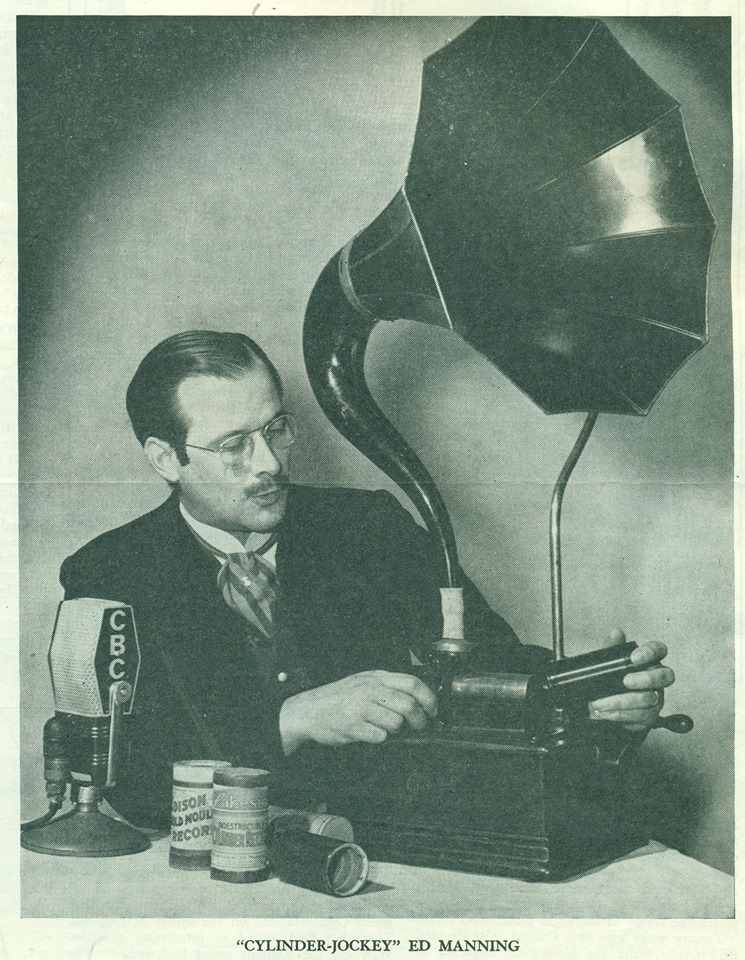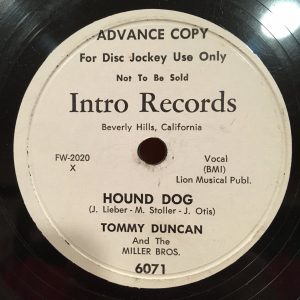I heard quite some opinions about why tango DJs should use different other words for what they are doing because the expression DJ wouldn’t fit them. I totally disagree with this and that’s why I drop these lines. The abbrevation DJ means Disc Jockey where Disc stands for a phonograph record, and, in extension any sound recording, and the word Jockey stands for operator. So in short it’s an operator who presents or mixes different sound recordings to an audience.
Some people argue that a tango DJ doesn’t mix and therefore you ought not call him or her a DJ like as the expression became reserved to the single context of clubbing. But the meaning of “to mix” is not that narrow it can also mean juxtaposing not just superimposing. And indeed the expression disc jockey is also much older than the electronic or scratched music culture from the 1980 and the first beatmatching experiences from the mid-1960s. It has started with early radio programs where presenters were playing records to the audience. Check this photograph, it’s from a time when records were still cylinders and they got already played to an audience!
 According to Wikipedia “In 1935, American radio commentator Walter Winchell coined the term ‘disc jockey’ (the combination of disc, referring to the disc records, and jockey, which is an operator of a machine) as a description of radio announcer Martin Block, the first announcer to become a star. While his audience was awaiting developments in the Lindbergh kidnapping, Block played records and created the illusion that he was broadcasting from a ballroom, with the nation’s top dance bands performing live. The show, which he called Make Believe Ballroom, was an instant hit. The term ‘disc jockey’ appeared in print in Variety in 1941″.
According to Wikipedia “In 1935, American radio commentator Walter Winchell coined the term ‘disc jockey’ (the combination of disc, referring to the disc records, and jockey, which is an operator of a machine) as a description of radio announcer Martin Block, the first announcer to become a star. While his audience was awaiting developments in the Lindbergh kidnapping, Block played records and created the illusion that he was broadcasting from a ballroom, with the nation’s top dance bands performing live. The show, which he called Make Believe Ballroom, was an instant hit. The term ‘disc jockey’ appeared in print in Variety in 1941″.
The term is very much connected with radio programs or dance venues where recordings are played in a juxaposed manner just as we do in modern milongas.
Therefore please spare me with words like TJ or other rare flowers. Also the word musicalizador is taken from a radio context and more specific to South-American Spanish and doesn’t mean anything else as DJ. Pinchadiscos, diyéi or disyóquey seem to be more common in Spain. Just changing the language of a word doesn’t necessarily change its meaning. Let’s keep it simple and call a spade a spade! 🙂


Ballroom DJs do not mix, scratch, whatever… and have no problem to be called DJs… although it is an almost extinct species nowadays